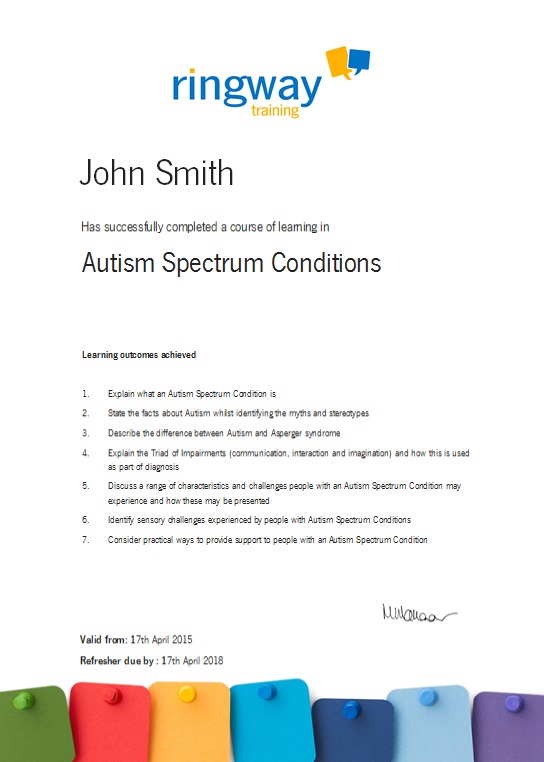Course Summary
In high-pressure environments like social care and education, the way an organisation handles the aftermath of an incident is as critical as the response to the incident itself. This Level 3 course provides a comprehensive framework for incident debriefing, focusing on the dual pillars of Post-Incident Support (caring for the individual) and Post-Incident Learning (improving organisational practice).
Staff working with young people frequently encounter high-arousal situations that can lead to cumulative workplace stress and secondary trauma. This training provides the tools to de-escalate that emotional impact, ensuring that "incidents" do not become long-term psychological barriers. By mastering structured debriefing, facilitators can transform a moment of crisis into a structured pathway for professional growth and emotional recovery.
Participants will explore the psychological impact of workplace stress and learn how to foster a 'resilient mind' through reflective capacity. The curriculum covers:
- The moral, legal, and organisational drivers for structured debriefing and duty of care.
- Advanced communication techniques, including strategic questioning and managing emotionally charged conversations.
- Environmental and accessibility considerations for inclusive debriefing sessions.
- Practical strategies for facilitator self-care, professional boundaries, and maintaining personal wellbeing.
- How to identify informal debriefing opportunities alongside structured, planned sessions.
A Holistic Approach to Workplace Wellbeing and Safety
By integrating trauma-informed principles with practical facilitation tools, this course bridges the gap between reactive crisis management and proactive cultural growth. It moves the narrative from "what went wrong" to "how do we recover and grow," ensuring that social care workers and other professionals are not only compliant with safety standards but are also emotionally equipped to sustain their vital work with young people. This holistic approach ensures that every incident becomes a catalyst for improved mental health outcomes and more robust educational and care environments.
Course Learning Outcomes
Review the learning objectives below. Expand each aim to view the detailed criteria this course covers.
- 1.1Define the term incident within an organisational, educational or care context.
- 1.2Explain the meaning of post‑incident support and post‑incident learning.
- 1.3Describe the purpose and value of facilitating incident debriefing sessions.
- 1.4Evaluate the relationship between incident debriefing, mental health, and mental ill‑health.
- 1.5Identify informal or alternative ways of debriefing in addition to planned, structured sessions.
- 1.6Describe the moral, organisational, and legal reasons why incident debriefing is important.
- 1.7State reasons why certain individuals may not be suitable to facilitate specific debriefing sessions.
- 1.8Explain the need for a whole‑organisation approach to incident debriefing and post‑incident learning.
- 2.1Describe the different ways people may become involved in incident situations, directly or indirectly.
- 2.2Explain the potential impact of incidents on individuals, including physical, emotional, mental, intellectual, social, environmental, and occupational effects.
- 2.3Describe ways to support and promote resilience through debriefing, including strategies that strengthen reflective capacity and emotional regulation.
- 2.4Explain the concept of ‘the resilient mind’ and how it can be encouraged within post‑incident support.
- 3.1Describe the skills, qualities, and interpersonal behaviours that contribute to effective facilitation.
- 3.2Describe a range of questioning techniques and explain when each may be appropriate within a structured debriefing.
- 3.3Identify ways to support individuals during difficult or emotionally charged conversations.
- 3.4Describe the importance of confirming confidentiality requirements and clarifying circumstances where confidentiality may need to be broken.
- 3.5Explain the preparation requirements for facilitating a structured debriefing, including environmental considerations, accessibility needs, and required resources.
- 4.1Explain the structure and stages of post‑incident support and post‑incident learning.
- 4.2Identify where to access additional support, guidance, or escalation pathways when required.
- 4.3Describe reasons why it is important to document occasions when individuals decline or feel unable to access support offered to them.
- 4.4Analyse the importance of maintaining and protecting your own mental health and wellbeing as a structured debriefing facilitator.
- 4.5Describe reflective practices that help facilitators learn from sessions and maintain professional resilience.
Who is this course for?
Specially designed for social care workers, teaching assistants, and frontline professionals, this course delivers the practical expertise required to manage workplace stress and lead effective post-incident recovery. While rooted in the care and education sectors, these high-level resilience strategies are universally applicable across various industries and business environments.
Duration
1 day course - we can be flexible on start and finish times to suit your needs such as school run friendly times.
Availability
This Stress Incident Debriefing Facilitator course is offered in two delivery formats:
- Remote Online: Led by a live tutor via Zoom or Microsoft Teams, allowing participants to join remotely. (Also known as virtual classroom training)
- Face-to-Face: Delivered in person at your location or a venue you arrange. (Also referred to as on-site training)
View a comparison of Remote and in-person face to face training .
Complete our quick enquiry form for a price and available dates.
Certification
Each learner completing this course will receive a digital (PDF) certificate of learning.
Accreditation
The course contents are accredited by the Open College Network (OCN) Credit4Learning as a Level 3 course.
Choose the learning environment that works best for you: our expert-led training is offered in two convenient formats - remote tutor led online or in person face to face.
Flexible start and finish times to suit you. Contact us for available dates.
The course contents are accredited by the Open College Network (OCN) Credit4Learning as a Level 3 course.
Get a Price or more information...
Just fill in this quick form and we will email you an all inclusive price, don't worry we will never add you to any marketing lists - promise. If you want more information first thats great - just get in touch
Clear pricing
We ask for location (for face to face training) and approximate numbers because we include any expenses in the quotes we give so you get one clear price - no surprise added extras
More Information?
If you have any questions, want more information or interested in a series of courses please contact us
Contact UsCourse FAQs

